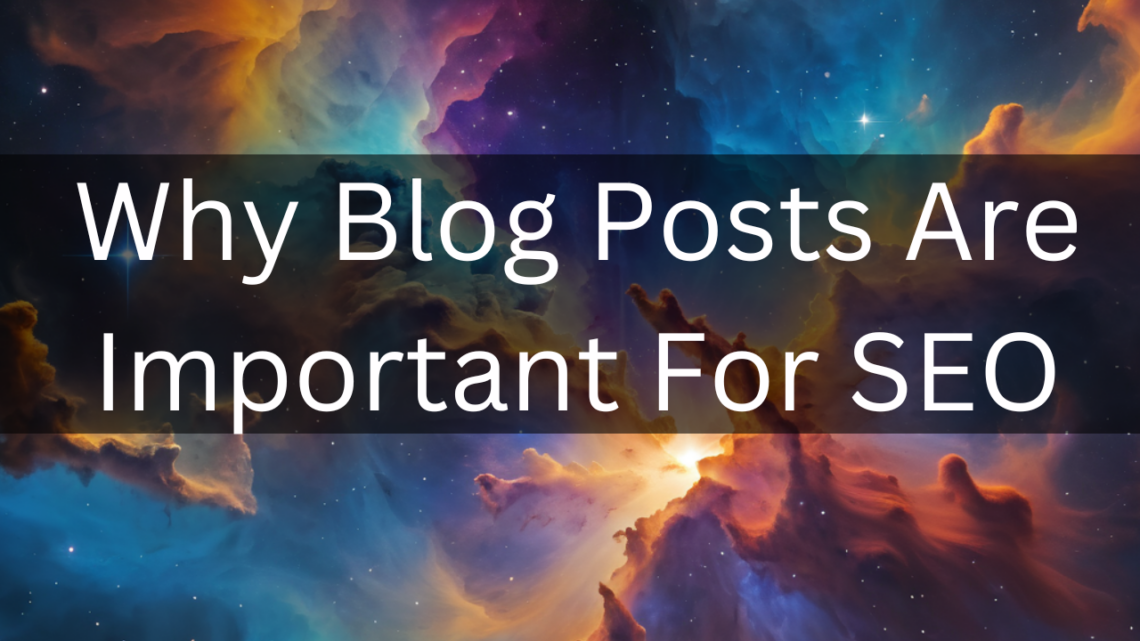Why Are Blogs Important for SEO
In the ever-evolving landscape of SEO, one constant remains: change is inevitable.
Indeed, the foundational principles of SEO endure: craft an optimal experience for your intended audience, facilitate their enjoyment of that experience, and in turn, earn the favor of search engines.
Yet, as technological advancements and shifts in user behavior occur, the precise strategies for achieving effective SEO also transform.
Nevertheless, amidst these shifting strategies, one approach stands as a cornerstone of SEO success: blogging.
Outlined below are seven compelling arguments for the significance of blogging in enhancing SEO in 2023 and the years to follow.
- 1. Blogs Amplify Brand Exposure
- 2. Blogs are key for targeting pertinent keywords
- 3. Blogs foster brand recognition and credibility
- 4. Blogs enhance your site’s crawl frequency
- 5. Blogs are instrumental in acquiring backlinks
- 6. Blogs promote exploration of your site
- 7. Blogs catalyze lead generation and conversions
1. Blogs Amplify Brand Exposure
One of the most significant SEO advantages of blogging is the enhancement of your brand’s exposure in search engine results.
Each blog entry has the potential to rank for a variety of keywords. Moreover, by strategically incorporating keywords into your header tags, your blog may also secure a spot in the ‘People Also Ask’ section, thereby boosting both visibility and web traffic.
Take, for instance, our blog on https://landgraflawncare.ca during their springtime rush, it lands 3-4 new clients for that company daily.
while these searchers arent specifically looking for a service, they increase traffic on the website, that google likes, builds trust within the community and people do directly contact them for service when they realize they dont have tools to do these jobs.

2. Blogs are key for targeting pertinent keywords
While landing pages excel with transactional keywords for those moments when customers are poised to make a purchase, blogs serve a broader purpose across various stages of the marketing funnel. They are instrumental in harnessing informational keywords, which are vital for cultivating customer awareness and sparking interest in your business’s offerings.
Furthermore, studies indicate that a whopping 70% of search queries are attributed to long-tail keywords, which typically consist of four or more words.
Blogs also play a crucial role in uncovering additional topics that could drive SEO traffic. By consistently analyzing your engagement data in Google Analytics, coupled with customer feedback and commentary, you can unearth new keyword opportunities that may further enhance your SEO strategy.
3. Blogs foster brand recognition and credibility
The frequency with which your brand appears in keyword rankings directly influences the likelihood of potential customers discovering and becoming familiar with your brand. This heightened visibility naturally leads to a bolstered sense of trust among consumers.
In time, this recognition can evolve into customers intentionally searching for your brand, resulting in an uptick in clicks and a cumulative improvement in your SEO performance.
4. Blogs enhance your site’s crawl frequency
Google has a penchant for new content.
By consistently updating your blog with fresh posts, you signal to Google that your website remains pertinent. This practice prompts Google to regularly crawl and index your site, a crucial factor for maintaining prominent visibility in search results.
In fact, it’s been shown that active blogging can lead to a staggering increase of more than 400% in the number of indexed pages.
5. Blogs are instrumental in acquiring backlinks
The primary website pages of a brand are often narrowly tailored with a clear objective: to sell. However, a blog presents an opportunity to delve into a diverse array of topics. It’s an avenue to elevate awareness about pivotal issues that your product distinctively addresses, to educate on the nuances of product utilization, and beyond.
Such informative content is ideal for link-building endeavors. Possessing a robust profile of backlinks is a critical component for SEO efficacy.
6. Blogs promote exploration of your site
Blogs are often more text-rich than other sections of a website. This abundance of content provides ample scope to incorporate internal links to various pages within your site, prompting readers of your blog to engage in further exploration.
Moreover, these internal links are not just a navigational aid for users; they also facilitate Google’s ability to more effectively crawl your site. This is yet another way in which blogs can positively impact your SEO initiatives.
7. Blogs catalyze lead generation and conversions
At first glance, SEO might appear solely focused on driving traffic. However, the true measure of a successful digital marketing strategy lies in its ability to convert that traffic into tangible results.
Fortunately, the investment in SEO is worthwhile. Data from HubSpot reveals that more than half of consumers have made a purchase from a brand as a direct result of engaging with their blog content. Furthermore, B2B organizations that maintain active blogs are reported to generate approximately 70% more leads monthly compared to those without a blogging presence.



